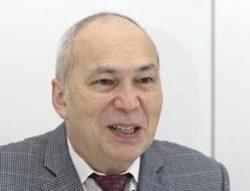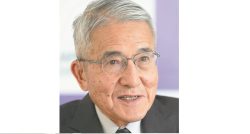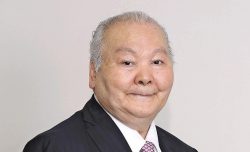Conductor Seiji Ozawa Dies at 88 After a Career of ‘Firsts’; Known for ‘Balletic Grace,’ Passion for Musical Education
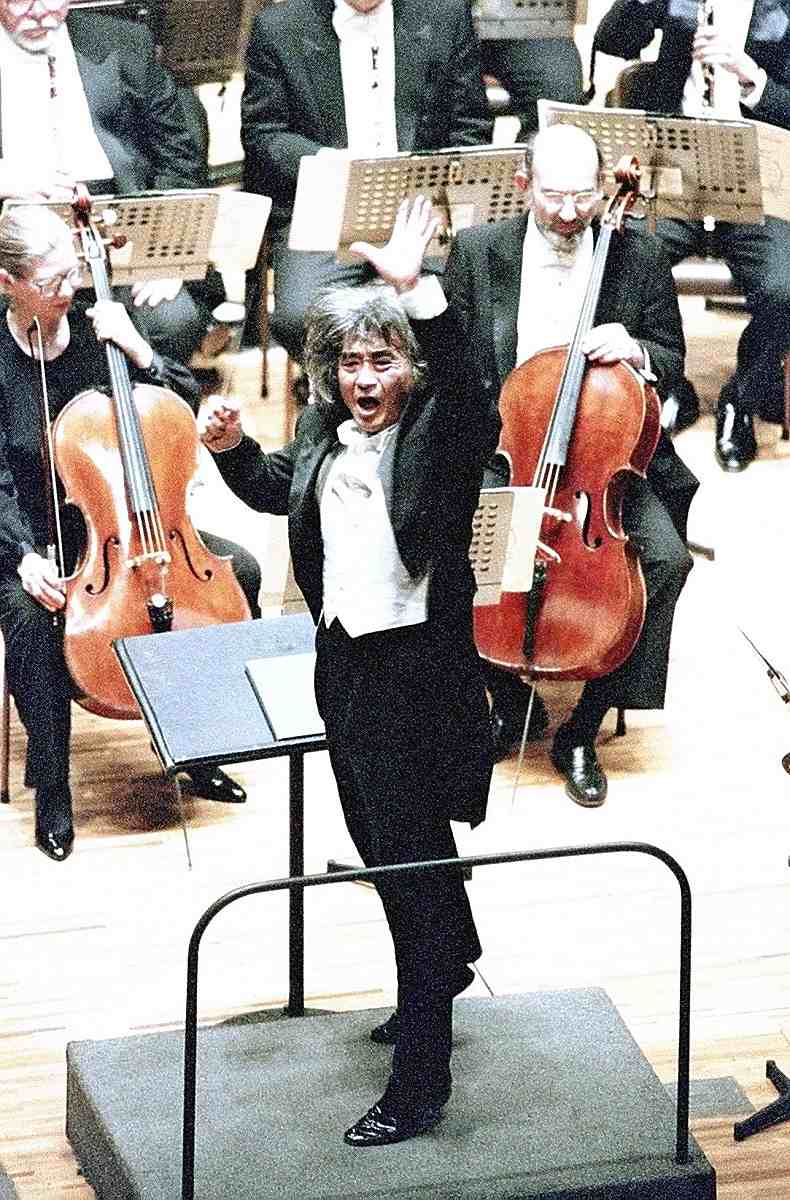
Seiji Ozawa conducts the Boston Symphony Orchestra in Osaka in 1994.
17:16 JST, February 10, 2024
Seiji Ozawa, a world-renowned conductor who performed with prestigious orchestras in Europe and the United States, died Tuesday of heart failure. He was 88.
Ozawa was the first Japanese music director of the Boston Symphony Orchestra (BSO), which he led for three decades, and also of the Vienna State Opera.
In the world of Western classical music, he paved the way for Japanese people. His career achievements were often described as the “first Japanese” and “first Asian.”
He studied conducting under Hideo Saito from his teenage years and won first prize at the International Competition for Young Conductors held in Besancon, France, in 1959. He also studied under Charles Munch, Herbert von Karajan and Leonard Bernstein — the leading conductors of the 20th century.
Ozawa established a solid reputation for his meticulous interpretation supported by thorough readings of scores and powerful conducting that involved throwing his entire body into conveying expressions.
From 1973 to 2002, he was the music director of the BSO. From 2002 to 2010, he led the Vienna State Opera, one of the world’s leading opera houses, where he staged operas by Wagner and Puccini. He also made frequent appearances with the Vienna and Berlin Philharmonics.
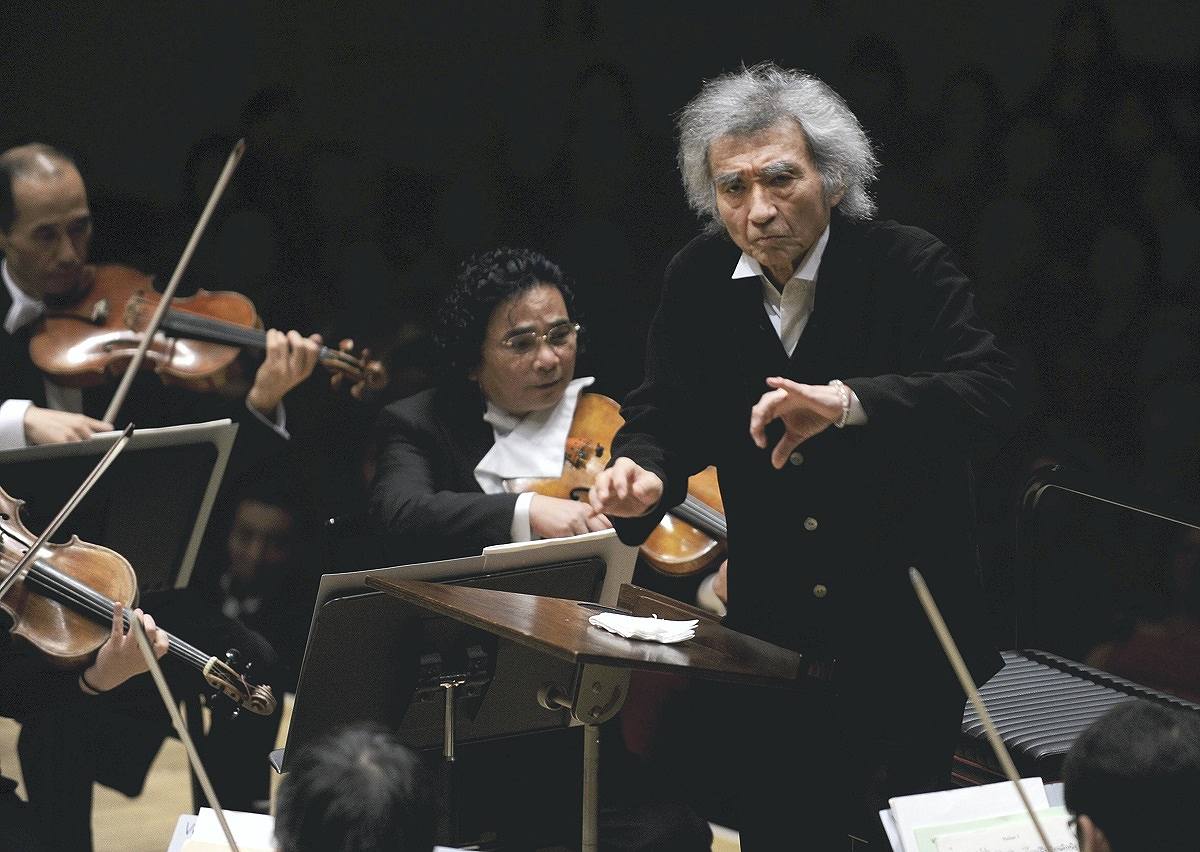
Seiji Ozawa performs a concert at Carnegie Hall in New York in December 2010.
In Japan, he was deeply involved with the New Japan Philharmonic and the Mito Chamber Orchestra. He also devoted himself to activities with the Saito Kinen Orchestra (SKO), which he founded with a group of musicians who studied under the tutelage of his mentor Saito. He also was the director of the Saito Kinen Festival Matsumoto — a music event that he started in Matsumoto, Nagano Prefecture, in 1992. It has been known as the Seiji Ozawa Matsumoto Festival since 2015.
He was awarded the Order of Culture in 2008 and was chosen to be a member of the Japan Art Academy in 2022.
In 2010, he announced that he had been diagnosed with esophageal cancer. In his later years, he rarely ascended the podium due to deteriorating health, but he never gave up his desire to conduct until the very end. In November 2022, he conducted the SKO to deliver Beethoven’s “Egmont.” That performance, in a wheelchair, became the maestro’s last one.
Throughout his life, Ozawa always challenged the world.
In 1959, after graduating from the Toho School of Music, he boarded a cargo ship headed for France to study music. From Marseille, where he landed, he set out for Paris on a scooter with the Japanese flag. In the capital, he learned of the Besancon competition and soon entered the contest, in which he was highly acclaimed for his skills.
Based on his extended experiences on the global stage, he once said: “You have to mingle all over the world. You should never become narrow-minded.”
Passionate about teaching the next generation of musicians, he founded the Seiji Ozawa Music Academy in 2000 and taught chamber music to string players in Okushiga, Nagano Prefecture, and in Switzerland.
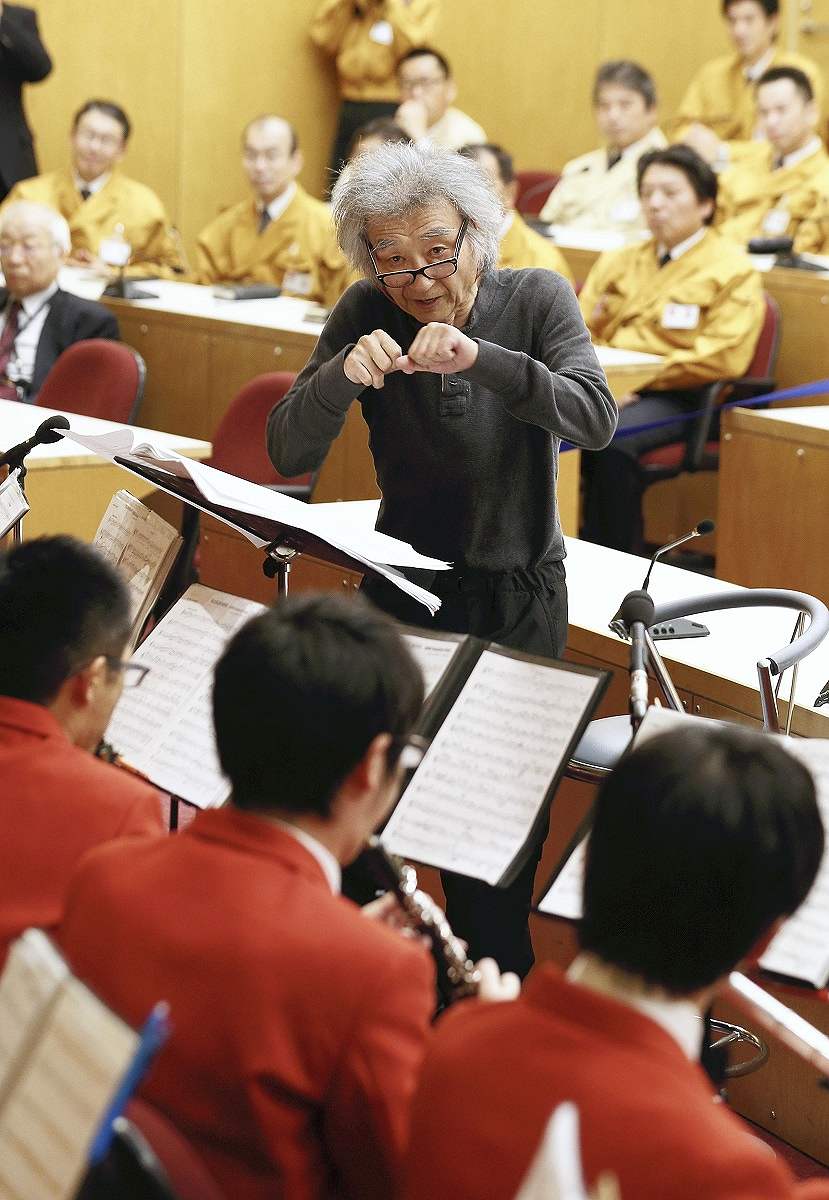
Seiji Ozawa gives performance instruction in Kyoto in December 2014.
He was friends with many prominent figures, including the late composer Toru Takemitsu, and the authors Kenzaburo Oe and Haruki Murakami.
A chorus of condolence was heard from the classical music world.
“He conducted a wide range of repertoire at will. He could perform any piece of music and made the best music,” said conductor Kazuyoshi Akiyama, 83, who also studied under Ozawa’s mentor Saito. “It is truly as if we have lost a great star.”
The BSO released a statement in which it described its former director as “a kind and thoughtful humanitarian; a musical genius who combined a balletic grace at the podium with a prodigious memory.”
“The Boston Symphony Orchestra remembers Maestro Ozawa not only as a legendary conductor, but also as a passionate mentor for future generations of musicians, generously offering his time to education and master classes,” it said.
Ozawa has an author daughter, Seira, and an actor son, Yukiyoshi.
The funeral was attended by close relatives.
Top Articles in Society
-

JAL, ANA Cancel Flights During 3-day Holiday Weekend due to Blizzard
-

Record-Breaking Snow Cripples Public Transport in Hokkaido; 7,000 People Stay Overnight at New Chitose Airport
-

Australian Woman Dies After Mishap on Ski Lift in Nagano Prefecture
-

Foreign Snowboarder in Serious Condition After Hanging in Midair from Chairlift in Nagano Prefecture
-

Train Services in Tokyo Resume Following Power Outage That Suspended Yamanote, Keihin-Tohoku Lines (Update 4)
JN ACCESS RANKING
-

Univ. in Japan, Tokyo-Based Startup to Develop Satellite for Disaster Prevention Measures, Bears
-

JAL, ANA Cancel Flights During 3-day Holiday Weekend due to Blizzard
-

China Confirmed to Be Operating Drilling Vessel Near Japan-China Median Line
-

China Eyes Rare Earth Foothold in Malaysia to Maintain Dominance, Counter Japan, U.S.
-

Japan Institute to Use Domestic Commercial Optical Lattice Clock to Set Japan Standard Time


